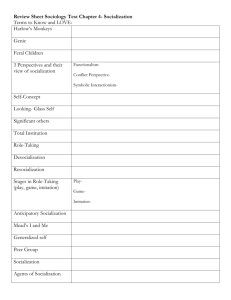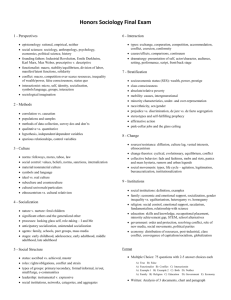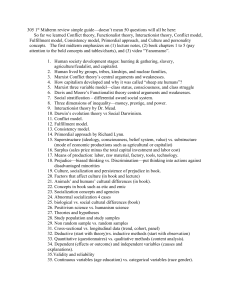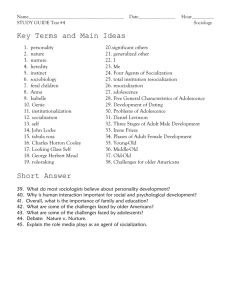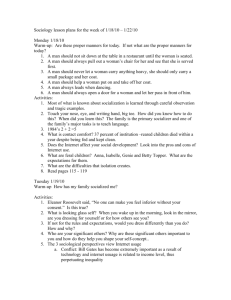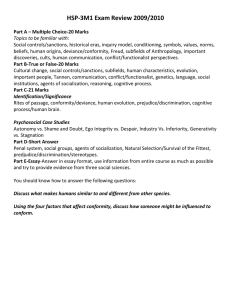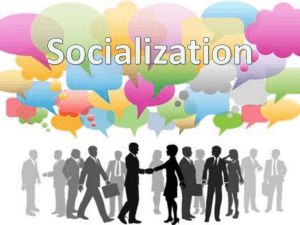Sociology Final Review
advertisement
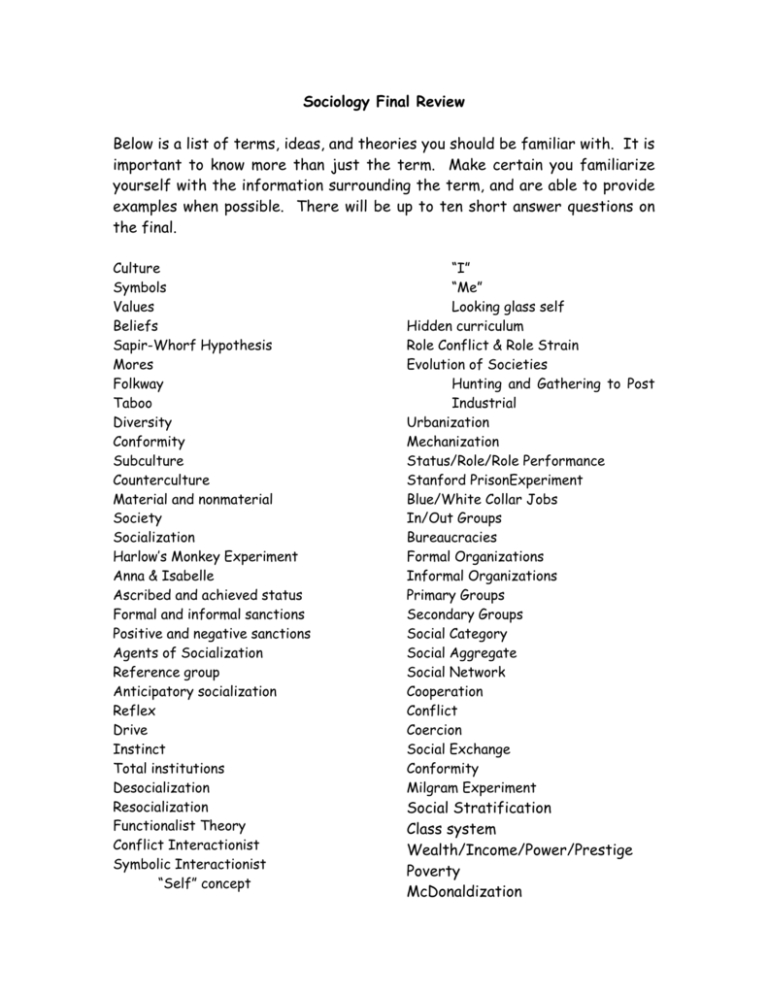
Sociology Final Review Below is a list of terms, ideas, and theories you should be familiar with. It is important to know more than just the term. Make certain you familiarize yourself with the information surrounding the term, and are able to provide examples when possible. There will be up to ten short answer questions on the final. Culture Symbols Values Beliefs Sapir-Whorf Hypothesis Mores Folkway Taboo Diversity Conformity Subculture Counterculture Material and nonmaterial Society Socialization Harlow’s Monkey Experiment Anna & Isabelle Ascribed and achieved status Formal and informal sanctions Positive and negative sanctions Agents of Socialization Reference group Anticipatory socialization Reflex Drive Instinct Total institutions Desocialization Resocialization Functionalist Theory Conflict Interactionist Symbolic Interactionist “Self” concept “I” “Me” Looking glass self Hidden curriculum Role Conflict & Role Strain Evolution of Societies Hunting and Gathering to Post Industrial Urbanization Mechanization Status/Role/Role Performance Stanford PrisonExperiment Blue/White Collar Jobs In/Out Groups Bureaucracies Formal Organizations Informal Organizations Primary Groups Secondary Groups Social Category Social Aggregate Social Network Cooperation Conflict Coercion Social Exchange Conformity Milgram Experiment Social Stratification Class system Wealth/Income/Power/Prestige Poverty McDonaldization Key Concepts Explain how culture and heredity affect social behavior Describe how language and culture are related Discuss how cultural diversity is promoted within a society Understand the role of ethnocentrism in society Discuss the role socialization plays in human development Describe the effects of extreme isolation on children Explain the concepts of socialization from the theorists perspectives Analyze the role of the family, school, peer group, and media in socializing young people Explain what sociologists mean by social structure Discuss how statuses and roles are related to social structure Explain how culture and social structures are related Compare and contrast preindustrial, industrial, and postindustrial societies List the major characteristics of primary and secondary groups Discuss the advantages and disadvantages of bureaucracy Distinguish between formal and informal organizations Explain the use of power within organizations Identify the distinguishing characteristics of the major social classes in America Discuss social mobility in America



